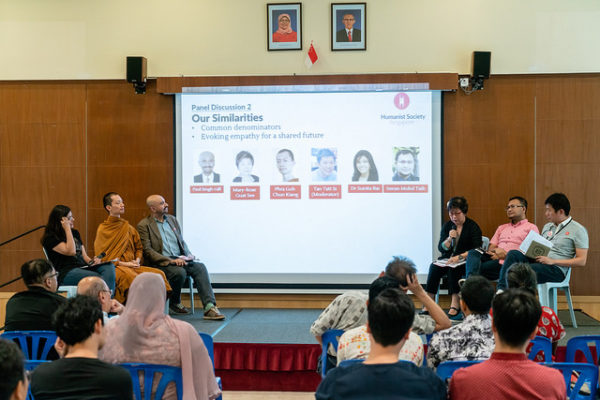One may have heard of secular organisations taking part in Interfaith conferences, but an organisation championing secularism running an interfaith forum may be likened to a philistine judging an arts competition, or a tone deaf person judging American Idol.
Quite the contrary, in fact. First of all, the word “interfaith” presumes it’s only between people of faith, and so people without faith should just sit by the sidelines of society. A belief system, however, can be one based on reason and evidence, and therefore InterBelief can be seen as an “inter-faith-and-non-faith”. It is obvious why the Humanist Society of Singapore (HSS) chose this nomenclature.
Celebrating the international World Humanist Day (occurring on 21 June to coincide with the summer solstice), Humanist Society Singapore (HSS) held the InterBelief session with the aim of creating a common space for mutual understanding among people of different faiths & nones. Dr. Catherine Lim, of writing and debating politicians’ fame was the keynote speaker, and she pulled no punches. Channeling her own distaste for the belief systems in her life, she said she finally arrived at the third and final belief system she embraces – humanism. It sounded a lot like ‘I found my perfect religion the last place I looked’. But the reality is : humanism is not a religion – it is a life stance.
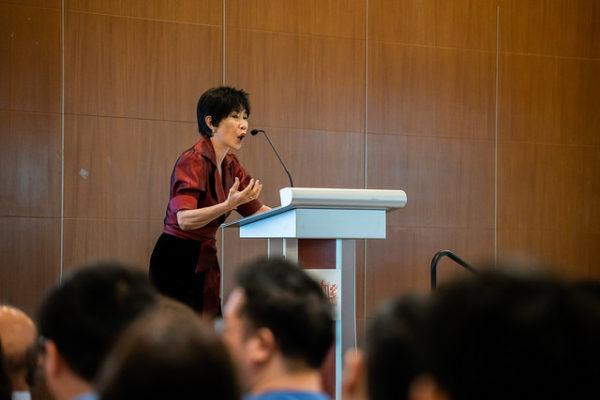
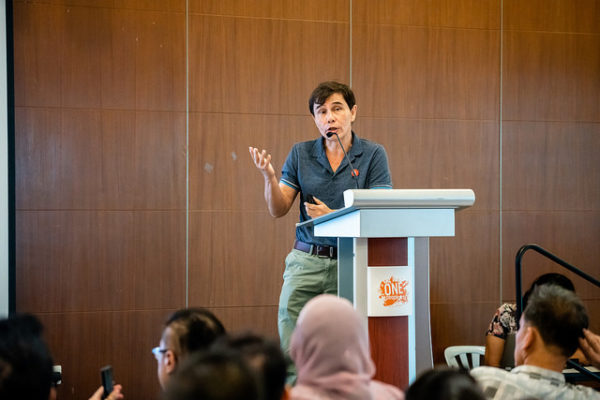
Next up, founding HSS president Paul Tobin’s dissection into the different types of nones, gave people the impression it is very easy to misconstrue the nones. Speaking passionately about science and evidence, while debating down religious claims, is not militant atheism, but one that goes purely on the merits of reason and evidence. Atheism needs not to trample on any faith, in so much as reason is the common denominator for discussion.
The moderated panels were where the action was to be found. The first panel, moderated by Dr. Matthia Lee , tried to highlight the differences in belief systems. The panel was cordial, and instead of a comparative analysis, they were mostly into their own corners of “unique propositions”, without antagonising other belief systems. Actions were stirred from the floor, when the audience raised questions or shared personal experiences. It was no surprise this was going to run overtime, and the organisers allowed the momentum to rule over the need for the scheduled timing tea break.
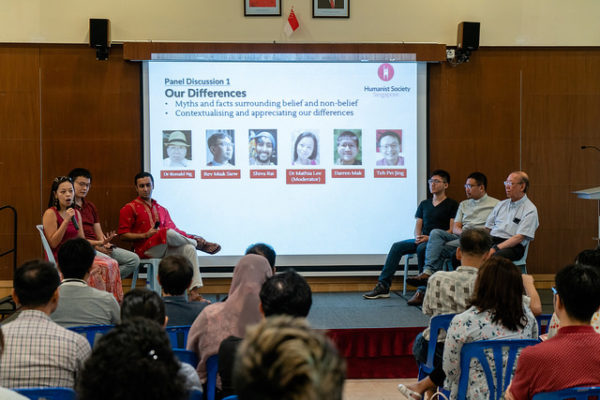
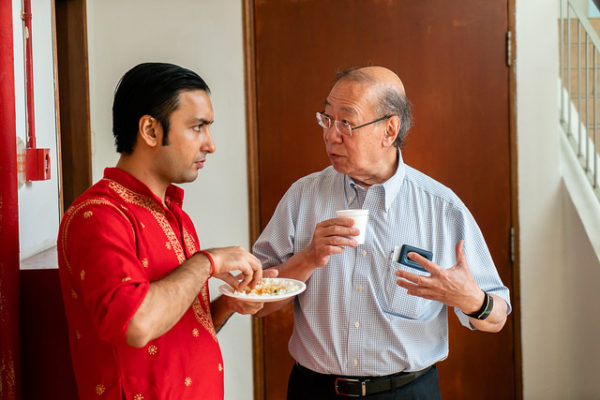
After a delayed tea break, a second and new panel convened. The main agenda of ‘commonalities’ was sacrificed for the airing and venting of comments and opinions. While never out of control, the session became what is akin to a “truth and reconciliation commission”, with candid and pointed questions from the floor, and a little reluctance and lack of time in answering by the panel. Many didn’t want to leave beyond the 5pm cutoff, and were willing to help rearrange furniture in the hope of getting more time with the panel, as a group or individually.
Moderator for the second panel, Mr Tan Tatt Si, president of HSS, explained : “Faith is emotional, and logical people can be passionate about rationality as well. InterBelief is only as good as the degree of freedom we permit for questioning. It can be messy, but from chaos comes a pattern, and a grounds-up understanding that talking openly is the only way forward, not sweeping dirt under the carpet. We are glad we did not try to steamroll our agenda , to seemingly arrive at a pretentious consensus.”
There are many interfaith out there. To this reporter, this HSS ‘messy truth’ version needs to be a permanent fixture.
You can catch the panel discussions at our Youtube channel: https://youtu.be/KZ-V62McIxc
